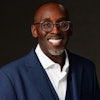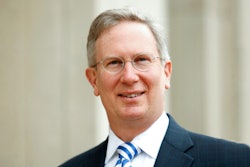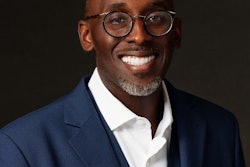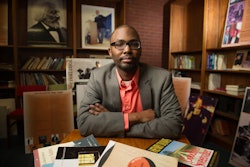Ward Churchill: By Firing Him, CU Regents ‘Gutted Academic Freedom’
By Peter Eichstaedt
BOULDER, Colo.
Former University of Colorado professor Ward Churchill may have lost his job, but he hasn’t lost his nerve.
“I said something that people in power and with money didn’t like,” he said, explaining his firing by university regents in July by an 8-1 vote.
Churchill, whose claims of American Indian ancestry have been challenged, said in an exclusive interview with Diverse that he plans to take the university to court over his dismissal.
The university “has not met its burden of proof” that he committed “research misconduct,” Churchill said, referring to the reason cited for his firing.
“I didn’t engage in plagiarism,” he said, noting that the scholars whose work he is accused of stealing have refused to lodge complaints against him. Rather, it has been found that he ghostwrote some of the material he’s been accused of using.
Churchill’s troubles began in early 2005 when protests erupted over an invitation for him to speak at Hamilton College in upstate New York. The protests were sparked when a Syracuse, N.Y., newspaper noted that he’d written an essay in which he referred to some victims of the Sept. 11 terrorist attacks as “little Eichmanns.”
Those words appeared in an op-ed published Sept. 12, 2001, online by Dark Night Field Notes. In the article, Churchill gave his explanation of the possible causes of the Sept. 11 attacks.
The essay was later expanded and published as a book titled On the Justice of Roosting Chickens: Reflections on the Consequences of U.S. Imperial Arrogance and Criminality, by AK Press in 2003.
In that essay, Churchill argued that those who died in the World Trade Center towers were not innocent victims. Rather, whether they understood it or not, they were part of a global empire headed by the United States that he compared to Germany’s former Third Reich.
Churchill claims he’s been targeted by organizations such as the American Council of Trustees and Alumni. The organization supported Churchill’s dismissal, but denies Churchill’s claim that it regularly investigates professors in the United States who push liberal agendas. Rather, ACTA president Anne Neal insisted the group’s aim is to “scrupulously defend professors’ academic freedom and expressive rights.”
Shortly after the controversy drew national attention, Churchill resigned as head of CU’s ethnic studies department, where he had been widely recognized for his scholarship and radicalism regarding American Indian issues.
Churchill’s claims of being a Cherokee were then questioned. Like the challenges to his research, his ethnic background is a manufactured controversy, he said.
“No White punk reporter in the Denver press corps is going to tell me who I am,” he said, noting that he has been an associate member of the Keetoowah Band of the Cherokee tribe since 1994, when he was asked to join.
He claims to be at least 1/16th Cherokee. It is difficult to prove, he explained, because the Cherokees require proof of biological ties to those who signed an 1899 registry of America Indians in Oklahoma. Not all Cherokees signed, he said.
Such definitions of ethnicity have been imposed by a racist view of people, he said. “It’s a David Duke way of seeing things. It has nothing to do with indigenous traditions.”
Ethnicity has little to do with the controversy surrounding him, however.
“I was hired for what I do,” he said, not because of claims of Native ancestry. Likewise, “I’ve been fired for what I was hired to do.”
That, he said, is to provoke people into thinking about and challenging prevailing notions of U.S. history and global politics.
“Nobody is being taught how to think,” he said. Instead, most universities are “teaching people what to think. That’s indoctrination.”
Churchill says he never expected his views to draw widespread attention, yet he has found that “it’s validating. I always had the expectation of restrictions” on free speech and academic freedom, he said, but “it’s an abstraction until you actually experience it.”
By firing him, the CU regents “gutted academic freedom,” he said. “Academic freedom only has meaning in the face of controversy and outrage.”
Said CU President Hank Brown in a statement: “The university has an obligation to ensure its faculty’s work is above reproach. Academic freedom requires academic integrity, responsibility and accountability.”
Churchill says his experience should be a warning to others in academia.
“We’re not just talking about people of color,” he says. “We’re talking across the board. It doesn’t matter who you are.”
Churchill, the author of more than a dozen titles on such topics as government repression, American Indian affairs and global politics, say he plans to continue writing.
“It’s not [one] book,” he said. “There’ll be several.”
© Copyright 2005 by DiverseEducation.com


















